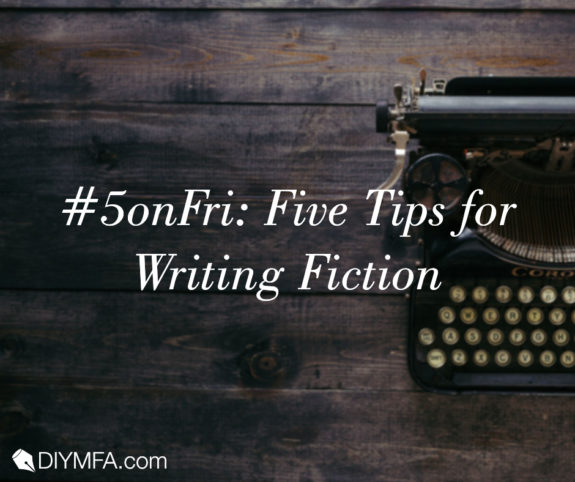As an author of three published novels and over thirty short stories, several of them award-winners, I have acquired a sense of how to approach a writing project and finish it. I taught myself about writing fiction by learning from mistakes and the way I erred in my early years as a writer. I’m still learning every day when I read and write, because reading and writing nourish each other.
In fact, how does a writer train himself? Hemingway trained himself by listening to his memory and rearranging it by tinting it, thus many of his writings seemed to come from first-hand experience.
You can create fiction from secondary sources by alertly watching what happens around you. You listen when people talk. You discern the smells around you. You understand, never judging, because you are everything―being the Maker―when you write.
The following five tips for writing fiction are subjective—every writer must have his own rules of writing. However, we all learn from one another and writing tips, therefore, contribute to such growth.
1. On Building Short Story Collections
Writers who have in their repertoire published and/or unpublished short stories would fret about how they fit together in a collection. Should the stories share a common thread, a theme? Can they be unrelated to one another and yet stand on their own merit?
Either approach works. However, the building of a story collection might benefit by strategically placing stories with reciprocal settings and moods in such a logical way they help the stories flow better.
Then each structure, as a cohesive unit, must impress either as a whole or by the strength of each individual story. Pleasure reading is that which seeks enjoyment. Whatever structure a story collection is built with must please readers in the end.
2. On Writing Routines
So you want to start writing fiction. Do you have a writing routine? I know no one’s routine is like another’s. I wrote every day. Each day, faithfully, by sticking to some basic rules:
- Find discipline in solitude so you can meet your characters. It’s like a rendezvous with ghosts. Then make that meeting every day or every night with no excuses.
- Write each scene as if it were the only thing in your universe—it must command all your attention.
- Write one scene well and let that scene breed the next scene.
- Leave room for readers to participate. Remember: Less is more.
- Stop where you still have something to say so the next day you won’t face a dry well.
- Read each day to keep your mind off your own writing.
- Don’t believe in anybody’s rules except yours.
Somewhere I remember Toni Morrison once said, “I wrote my first novel because I wanted to read it.”
3. On Revising
You finished a short story or a novel’s chapter.
Now go back and fine-tune it—add, delete—what needs to go in, be taken out. Repair the characters. Do it when your mind is still fresh with the scenes and the characters of that story or chapter.
However, you must be unbiased (which is hard toward what you’ve just written) and detached (which is harder from what you’ve just built), so you can see your own creative flaws.
Or it will be challenging much later to go back to fix the flaws either on your own courage, or at an editor’s request.
4. On Characterization
Unlike an actor who plays just his role, an author plays all his characters’ roles, like a man who plays chess against himself.
You can imagine characters. Yet until you write them out, you haven’t known them. Let them interact with one another. It’s then that you begin to explore your characters’ depths.
If you ask me what’s the hardest part in writing a novel, I’ll tell you: characterization. That’s what separates a literary novel from a potboiler.
Characters shape a story line, not the other way around. You can’t think up a plot and shoehorn your characters into it. If you do, you are writing a potboiler.
In fact, well-developed characters create a more convincing story line, even shaping it or altering it against your original vision.
5. On Hard Scenes
Writing fiction is just like any normal part of our daily life. It ebbs and flows. The worst thing to a writer isn’t writer’s block but illness that can really affect his writing. Other than that, as Hemingway once said, there will be days when you have to drill rock and then blast it out with charges. When that happens, just take a break, do something else and let your battery be recharged.
There are no hard scenes to write. Really. Those so-called difficult scenes are what writers make them out to be with their paranoia. So before they can write such scenes, their anxiety has already killed their creativity to write them.
What is your best advice on writing fiction?

Khanh Ha is the author of Flesh and The Demon Who Peddled Longing. He is a seven-time Pushcart nominee, finalist for the Mary McCarthy Prize, Many Voices Project, Prairie Schooner Book Prize, and The University of New Orleans Press Lab Prize. He is the recipient of the Sand Hills Prize for Best Fiction, the Robert Watson Literary Prize in Fiction, The Orison Anthology Award for Fiction, and The C&R Press Fiction Prize. His new novel, Mrs. Rossi’s Dream, was named Best New Book by Booklist and a 2019 Foreword Reviews INDIES Silver Winner and Bronze Winner. You can find him on his website, and follow him on Facebook and Twitter.







